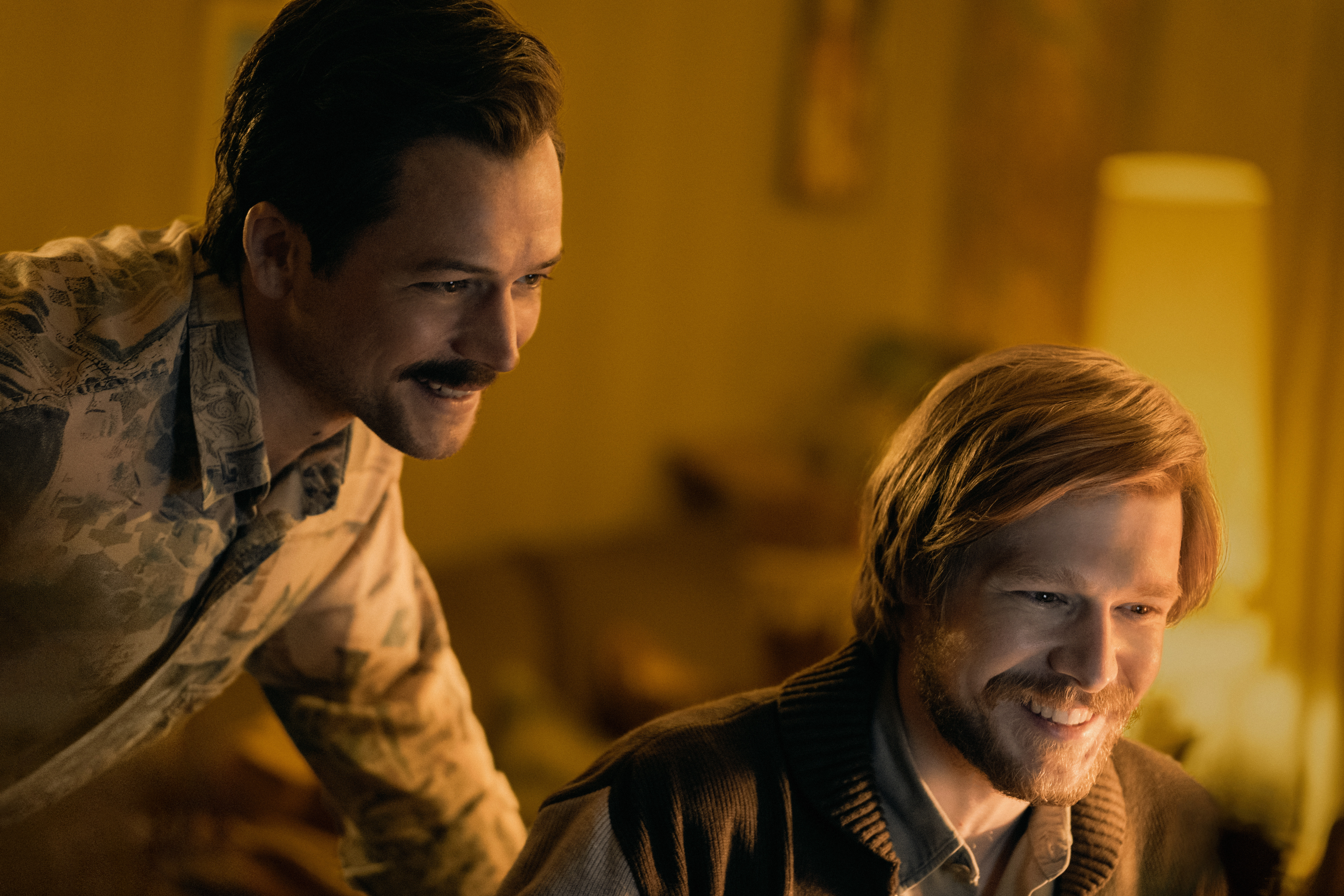Don’t be fooled by the name (or the opening credits and graphics). Apple TV+‘s Tetris is not a video game movie. Nor is it a movie about the game — not exactly. The film starring Golden Globe winner Taron Egerton tells the story of the international battle to distribute and license the popular video game — which was created in Soviet Russia — at the end of the Cold War.
The film establishes the setting and attempts to set the tone early on with the opening sequence. With 8-bit animation and music, it’s no secret Tetris is meant to be a fun and entertaining story set in the 1980s. These thematic elements, including 8-bit animated transitions and the introduction of main characters as “players” with their own animated characters, create a sense of cohesion and tie the entire film together visually and musically.
If the audience isn’t immediately lured in through the retro vibes of colorful blocks and music, Egerton‘s Henk Rogers is sure to do the trick. First shown trying to attract customers and investors at a video game conference in Las Vegas but ultimately failing to, Rogers is introduced as someone who is relatable and easy to root for: an everyday working man who’s trying to make a living. Rogers discovers Tetris shortly after and is immediately fascinated. After five minutes of playing, he begins a rollercoaster of a journey in securing the rights to the game for Japan, where he lives and works as a game publisher and designer.
The movie is a cycle of actions demonstrating serious commitment, ambition, charm, and risk on Rogers’s part, whether it be using his house as collateral at the bank, sneaking into Nintendo headquarters, or illegally going to Moscow on a tourist visa. It’s a pretty stark contrast to the man who brought the game to life.

Tetris inventor Alexey Pajitnov is mostly reserved and cautious, wary of taking risks in Soviet Russia even though he sees absolutely no profit despite the popularity of his game worldwide. Stereotypical wealthy father-son duo Robert and Kevin Maxwell see themselves at the top of the world, relentless in their pursuit for Tetris — though with different intentions and methods. (Robert brags many times throughout the film that he knows and is good friends with Mikhail Gorbachev.) Middleman and original licenser Robert Stein can be a doormat but ultimately isn’t afraid to do what he must to get what he wants.
The combination of these characters creates gray scenarios that are true to reality. One scene may have us siding with Robert and against son Kevin, and in the end, it could be reversed. Contributing to that sense of reality is Egerton’s Rogers. Though he may be the protagonist we’re meant to root for, he isn’t without fault, which Egerton portrays well.
When it comes to the conflict, it has layers but can understandably feel repetitive. The characters are literally fighting and racing to get the rights to a game. They either get it or they don’t. But like Stein says to Rogers after they meet for the first time in London, “It’s complicated.”

There are computer rights, arcade rights, video game console rights, and — eventually — handheld rights. And the handheld rights are the true catalyst of the story. Fortunately, the revolutionary Nintendo Game Boy shows up within the first half hour of the movie.
Unfortunately, with a runtime of one hour and 57 minutes, the story is far from over at that point. It truly can feel like a game of Tetris, not choosing the best spot for the tetromino a couple of times in a row but still far from hitting the top of the screen, leaving us wondering, “How does this all turn out, and why should I care?”
Interestingly, the fight for rights to Tetris came at a time that revealed tears in the Iron Curtain, contributing to the end of the Soviet Union and the Cold War. Tetris offers a unique look at the important historical era that still affects the world today. On a less historical note, Tetris is about taking chances, a man trying to keep his promises, and giving credit where credit is due.
Tetris is now streaming on AppleTV+.

